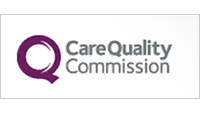Malaria
Malaria is a serious illness caused by a tiny parasite called plasmodium and is transmitted by mosquito bite from an infected person to a healthy person. Malaria is common to areas such as Central and South America, Africa and Asia where there is often limited access to medical care and the disease is a major cause of death.
For travellers, the disease is curable if diagnosed and treated in time. By following malaria prophylaxis and taking a few other simples steps, you can minimise the risk of infection.
Pharma.myonlinedoctor can provide you with a private prescription for Malaria medication following an online consultation with our GMC and EU-registered doctors.
Which Malaria tablets are available?
There are four types of prophylaxis available: Malarone, Mefloquine, Doxycycline, Chloroquine and Paludrine.
Chloroquine (Avloclor or Nivaquine) and proguanil (Paludrine) can be bought over the counter from a pharmacy. If you are planning to go away for a long period you may need to leave extra time so your medications can be ordered in. In some areas mosquitoes are resistant to chloroquine.
Mefloquine (Lariam), doxycycline (eg Vibramycin) and Malarone all require a prescription from your doctor.
The type of medication prescribed will depend on your area and duration of travel and health details your doctor will ask you about such as allergies and whether you are pregnant or breastfeeding. Visit your doctor at least 3 weeks before you intend on travelling to allow ample time to source treatments and begin taking them.
Malaria tablets are not offered on the NHS, so you will be expected to pay for your medications.
What are the benefits of our service?
- Cost savings Our costs are up to 20% cheaper than a typical high street pharmacy
- Convenience We offer a FREE next day delivery service
- Peace of mind: Your prescription will be written by an experienced GMC or EU-registered doctor and sent to you by our GPhC-registered pharmacy.
How are these medications taken?
Our doctor will advise you on how to take your malaria tablets, although standard dosing regimes can be found below.
Main points to consider
Before taking malaria treatments, tell your doctor if you :
- are pregnant, planning a pregnancy or breastfeeding
- suffer from any diseases or conditions
- are taking any regular medications
Using malaria tablets can change the effectiveness of your contraceptive pill. As a rule of thumb during the first three weeks of taking doxycyline, use an extra method of contraception, such as a condom. If, during this time, you are due to finish your pack, you should start your next pack straight away and ignore the 7 day break. Check with your doctor before taking these medications together.
Take:
- Once daily for two days before you go
- Once each day you are there
- And once a day for one week after leaving the risk area
Take:
- Once during the week before you go
- Once weekly, on the same day each week, whilst you are away
- Once weekly, on the same day each week, for four weeks after leaving the risk area
Take:
- Once daily for two days before you go
- Once daily each day you are there
- And once daily four weeks after leaving the risk area
Take Chloroquine:
- On the same day each week
- Once during the week before you go
- Once a week whilst you are there
- And once a week for four weeks after leaving the risk area
Take Paludrine:
- Once daily during the week before you go
- Once daily each day you are there
- And once daily four weeks after leaving the risk area
About Malaria
Malaria is a disease caused by various types of parasites known as Plasmodium. Left untreated it can be potentially fatal, however you can take anti-malaria tablets to protect yourself whilst travelling through areas affected by malaria.
Malaria symptoms are flu like, although a particular characteristic is that symptoms occur every 2-4 days. Normally the first signs of malaria are seen one week to 2 months after being bitten by an infected mosquito. For precautionary reasons you should still report any similar symptoms up to 6 months after returning.
Typical symptoms include headaches, tiredness, nausea, fever and chills lasting 24 hours. In some cases the infected person sweats heavily and may experience breathing problems.
If you have recently travelled to an affected area and suspect you may have malaria contact your GP or another medical professional for advice and immediate medical attention.
Prevention is always better than cure. Protect yourself from the risk of contracting malaria.





